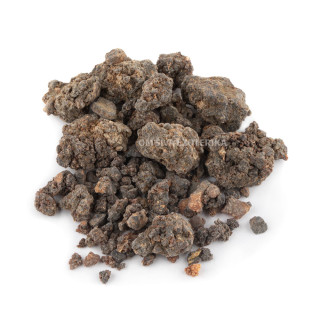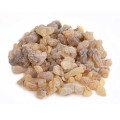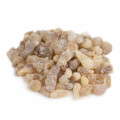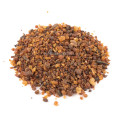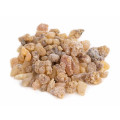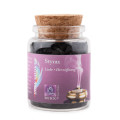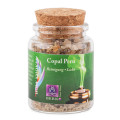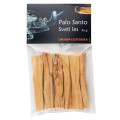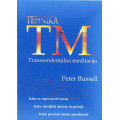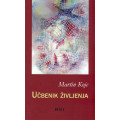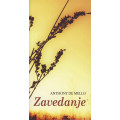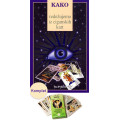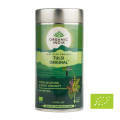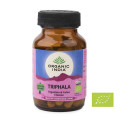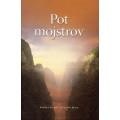Incense resin: Opoponax Hagar
Net: 100 g
Botanical name: Commiphora erythraea
Other names: Opoponax, sweet myrrh, bisabol myrrh, hagar
Color: dark red brown
Origin: Somalia
The name Opoponaks probably comes from the Latin Opoponace - opposite. In fact, this incense can be considered the opposite of the classic type of myrrh (Commiphora myrrha). It differs in that opoponax is sweeter, with less bitterness compared to classic myrrh. It can also be a bit sticky. It has almost no bitterness and is very intense. Hagar has a high oil content.
The genus Commiphora, like its relative boswellia, belongs to the balsam family and is even more numerous than boswellia (frankincense) trees on our beautiful land. It is difficult to say exactly how many species of Commiphora there are, certainly more than 100.
Opoponax Hagar, like his 'sister' Hadi, comes from Somalia, but both are known under the name opoponax. The fruity, reddish-orange Opoponax is called Hadi in Somalia. A darker, sometimes sticky resin with a deep ocean scent is called Hagar.
Hagar resin will definitely appeal to those who find classic myra too bitter. Because the resin is very oily, the smell is really intense.
Very soft, very deep and mystical. The aroma is also sweet, caramel with woody notes. A rich scent.
It is recommended:
- to protect and purify energies
- for relaxation
- for inspiration..
It is used on a smoking briquette or mesh.
Damar, dragon's blood, elemi, frankincense, gugul, myrrh, patchouli, sandarak, etc.
Net: 100 g
Botanical name: Commiphora erythraea
Other names: Opoponax, sweet myrrh, bisabol myrrh, hagar
Color: dark red brown
Origin: Somalia
What is Opoponax?
Opoponax Hagar (Xagar in Somalia) is a special resin and relatively atypical of Commiphora resin. Opoponax is the resin of a large tropical tree similar to myrrh that grows in Ethiopia and Somalia.The name Opoponaks probably comes from the Latin Opoponace - opposite. In fact, this incense can be considered the opposite of the classic type of myrrh (Commiphora myrrha). It differs in that opoponax is sweeter, with less bitterness compared to classic myrrh. It can also be a bit sticky. It has almost no bitterness and is very intense. Hagar has a high oil content.
The genus Commiphora, like its relative boswellia, belongs to the balsam family and is even more numerous than boswellia (frankincense) trees on our beautiful land. It is difficult to say exactly how many species of Commiphora there are, certainly more than 100.
Opoponax Hagar, like his 'sister' Hadi, comes from Somalia, but both are known under the name opoponax. The fruity, reddish-orange Opoponax is called Hadi in Somalia. A darker, sometimes sticky resin with a deep ocean scent is called Hagar.
Hagar resin will definitely appeal to those who find classic myra too bitter. Because the resin is very oily, the smell is really intense.
On the smell of Hagar opoponax resin
Very soft, very deep and mystical. The aroma is also sweet, caramel with woody notes. A rich scent.
Effects of Opoponax resin
Works similarly to the incense of common myrrh. Grounds in the 'here and now'. It is traditionally used to disinfect rooms and protect against negative influences. The smell awakens inspiration, intuition and optimism.It is recommended:
- to protect and purify energies
- for relaxation
- for inspiration..
Method of use
It is used on a smoking briquette or mesh.
What blends well with Opoponax
Damar, dragon's blood, elemi, frankincense, gugul, myrrh, patchouli, sandarak, etc.
No reviews found

